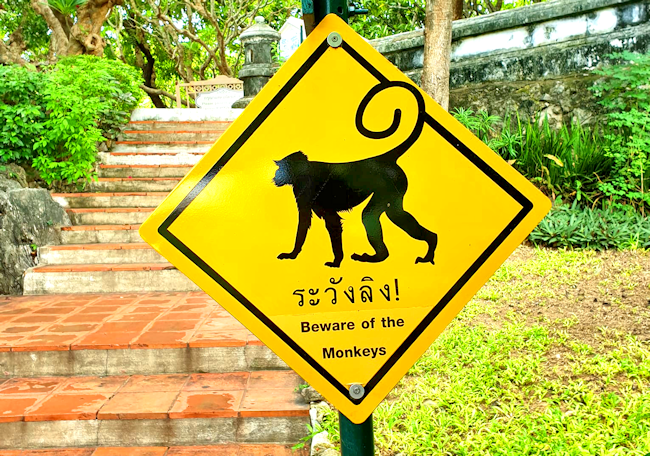Wild monkeys are a common sight in Thailand, but they can also be dangerous. Monkeys are wild animals, and they can be unpredictable and aggressive. They are also known to carry diseases, such as rabies and hepatitis B.
Here are some of the dangers of wild monkeys in Thailand:
- Bites and scratches: Monkey bites and scratches can cause serious infections, including rabies. Rabies is a fatal disease that attacks the nervous system. It is important to seek medical attention immediately if you are bitten or scratched by a monkey.
- Disease transmission: Monkeys can carry a number of diseases, including rabies, hepatitis B, and tuberculosis. These diseases can be transmitted to humans through bites, scratches, or contact with monkey saliva or feces.
- Theft: Monkeys are known to steal food and other belongings from tourists. They are especially attracted to shiny objects, such as jewelry and sunglasses. It is important to be aware of your surroundings and to keep your belongings close to you when you are around monkeys.
- Aggression: Monkeys can be aggressive, especially if they feel threatened or if they are hungry. They may attack people who get too close or who try to feed them. It is important to avoid contact with wild monkeys and to give them a wide berth.
Here are some tips for staying safe around wild monkeys in Thailand:
- Avoid contact: The best way to stay safe around wild monkeys is to avoid contact with them altogether. If you see a monkey, keep a distance of at least 10 meters.
- Don’t feed the monkeys: Feeding wild monkeys encourages them to approach people and can make them more aggressive.
- Be aware of your surroundings: Keep your belongings close to you and be careful not to leave food or drinks unattended.
- If you are attacked: If you are attacked by a monkey, try to protect yourself from bites and scratches. If possible, try to escape to a safe place. If you are bitten or scratched, seek medical attention immediately.


